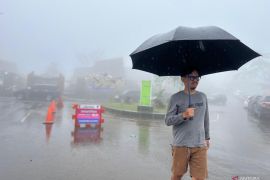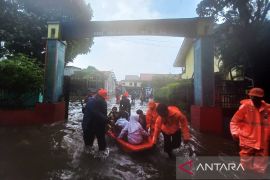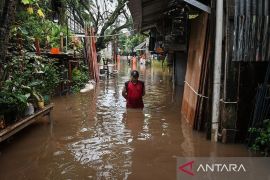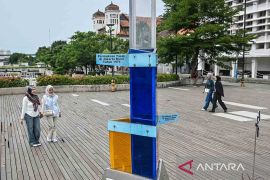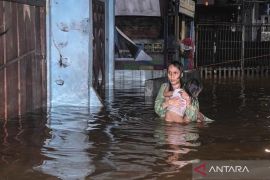"We are afraid that bad weather which disturb the smoothness of the transportation of goods will affect the national inflation, and therefore we have to anticipate it," the finance minister said here on Thursday.
He said that CPI in these numbers could approach one percent and this is a concern of government, added the problems of transportation system disruption due to weather is happening in the nation`s capital.
"In Jakarta itself the impact is like this. Especially in areas that infrastructure is not very good yet," he said.
He said that the current weather conditions difficult to predict as they are not going to end in short time, and potentially disrupt the national economy.
Because of that, he expects coordination between central and local government can be improved, so that uninterrupted flow of goods and the inflation rate is maintained.
"It must be addressed with good coordination at the local government and the central government in order not to affect the Indonesian economy," he said.
The government expects the inflation rate in 2013 was in the range of 4.9 percent-5, 3 percent due to an increase in risk due to external pressures that are reflected in imported inflation.
The risk of increasing inflation is also caused as a result of rising provincial minimum wage (UMP), the planned increase in gas prices, and the planned increase in toll rates and freight rates.
So, the policy coordination with Bank Indonesia will continue to be improved to synergize fiscal, monetary and real sectors in order to keep inflation is at the target range of 4.5 percent plus or minus one percent.
Meanwhile, the Central Statistics Agency (BPS) recorded that national inflation rate reached 4.3 percent in 2012, lower than the budget assumption change of 6.8 percent.
(S038/KR-BSR/O001)
Editor: Jafar M Sidik
Copyright © ANTARA 2013

